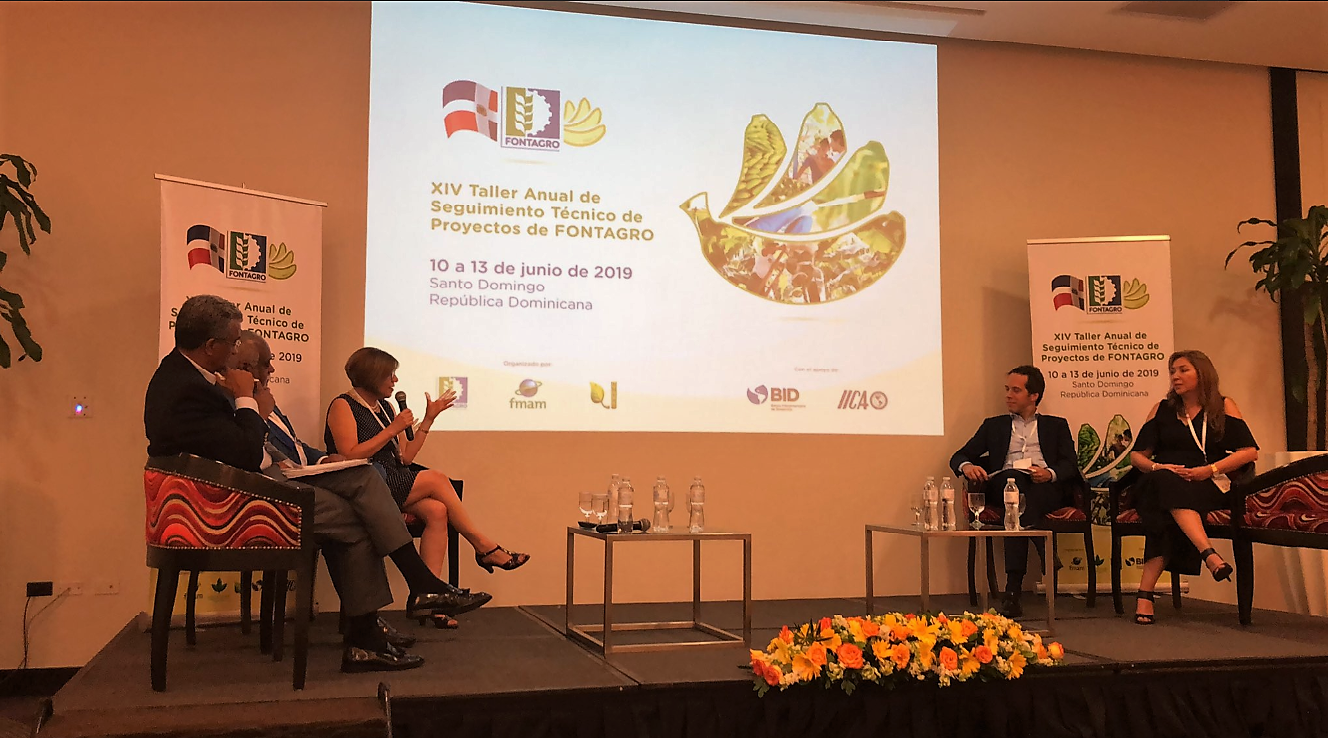IICA has committed to promoting these networks to support the Regional Fund for Agricultural Technology (FONTAGRO), sponsored by the Institute and the IDB.

San Jose, 12 June, 2019 (IICA). The Inter-American Institute for Cooperation on Agriculture (IICA) has reaffirmed its commitment to support the Regional Fund for Agricultural Technology (FONTAGRO) through networks of specialists, with a view to promoting agricultural research and innovation in the Americas.
The decision was confirmed by the Institute’s Director of Technical Cooperation, Federico Villarreal, during a Workshop for the Technical Monitoring of FONTAGRO Projects held in Santo Domingo, Dominican Republic.
“Our support to FONTAGRO is part of our knowledge management strategy, using networks to advance agricultural research and innovation. This is an important component of our hemispheric technical cooperation,” Villarreal explained.
FONTAGRO is a regional cooperation mechanism created in 1998 to promote innovation in family farming, competitiveness and food security. Its 15 member countries are: Argentina, Bolivia, Chile, Colombia, Costa Rica, the Dominican Republic, Ecuador, Honduras, Nicaragua, Panama, Paraguay, Peru, Spain, Uruguay and Venezuela.
FONTAGRO is sponsored by the Inter-American Development Bank (IDB) and IICA; to date, it has mobilized USD 105.5 million for projects that have generated key innovations to benefit family farming.
As part of the workshop, which brings together researchers, planners and public policymakers, FONTAGRO organized the Forum entitled “From Science to Innovation: success stories and lessons learned in a time of change, including climate change,” focusing on innovation in the agriculture and agrifood sector.
The workshop included the participation of experts from the Dominican Republic’s Ministry of Agriculture, IICA, the National Rice Growers Federation (FEDEARROZ) of Colombia and the private sector, who discussed the challenges of applying science in practical ways that will have a positive impact on small-scale producers.
According to Priscila Henríquez, IICA’s Innovation Specialist, small farmers “produce more than 50% of the world’s food. They need research, extension and advisory services. Their demands for innovation are both a challenge and an opportunity. That’s why at IICA we promote technical cooperation with actions, especially through mechanisms that bring together researchers, extension workers, decision-makers and producers’ associations.”
FONTAGRO’s Annual Meeting also included the IV Symposium on Adapting Family Farming to Climate Change, where experts presented the preliminary findings of an analysis to determine the impact of climate change on key crops in the Central American and Andean Community countries. The IDB entrusted this work to specialists of the International Center for Tropical Agriculture (CIAT).
The workshop will close with a special meeting of the Board of Directors of FONTAGRO. In addition, the leaders of technological innovation projects will present the results of their initiatives and will discuss opportunities for disseminating these and improving their impact to benefit the agriculture sector. The participants will also select the project that has achieved the best results.
More information:
Priscila Henríquez, IICA Specialist in Innovation.











